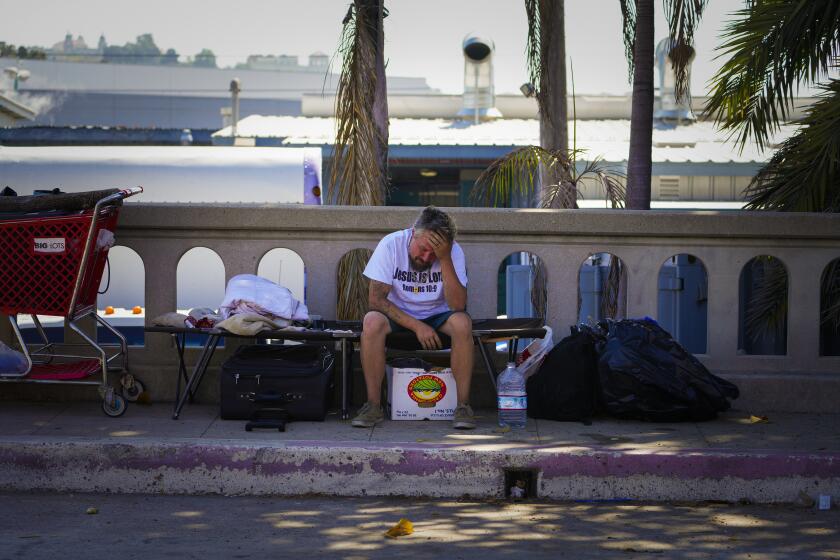Dana Milbank: Marco Rubio’s fury over Cuba shift
Sen. Marco Rubio of Florida, the Republican Party’s point man on Cuba, seemed to be struggling to contain his fury as he responded to President Obama’s move Wednesday to normalize relations with the Cold War foe.
The Cuban-American legislator, addressing a roomful of reporters and photographers in the Capitol, chopped the air with his right hand, fired off terse answers to questions and, frequently raising his voice, spat insults at the Obama administration:
“Absurd.”
“Disgraceful.”
“Outrageous and ridiculous!”
“Concession to a tyranny.”
“Based on an illusion, on a lie.”
“Conceding to the oppressors.”
“Willfully ignorant of the way the world truly works.”
Fox News’ Chad Pergram asked Rubio why he was so confident the Cuba shift would be a disaster and not a success like the Camp David accords or the Good Friday agreement in Northern Ireland, which also had their critics.
“Because I know the Cuban regime and its true nature better than this president does or anybody in his administration does,” the senator replied.
Another questioner pointed out that younger Cuban-Americans support normal relations with Cuba.
“I don’t care if the polls say that 99 percent of people believe we should normalize relations in Cuba,” Rubio answered.
He threatened to use his new position as a subcommittee chairman on the Senate Foreign Relations Committee to block the nomination of an ambassador to Cuba and the building of an embassy there.
Rubio’s emotional — and at times inaccurate — response to the policy change shows why Obama’s move to normalize ties to Cuba after more than half a century is both good policy and good politics. It’s good policy because it jettisons a vestigial policy that has stopped serving a useful purpose, and because it is a gutsy move by Obama that demonstrates strong leadership and will help revive him from lame-duck status. It’s good politics because it will reveal that the Cuban-American old guard, whose position Rubio represents, no longer speaks for most Cuban-Americans.
Florida International University, which annually polls Cuban-Americans, found this year that 68 percent favor diplomatic relations with Cuba. Only 41 percent of those 65 and older favor normalization, while 88 percent between the ages of 18 and 29 do.
But Rubio was responding with his gut, which has been seasoned by the unwavering dogma of Cuban exiles. He began his remarks with the phrase “As a descendant of Cuban immigrants and someone who’s been raised in a community of Cuban exiles,” and he observed that “Cuba is close to home for me, both because of my heritage, also because of the community I live in.”
This immersion has filled Rubio with faith-based logic, and an absolute certainty of outcomes that cannot be knowable. “I now know for a fundamental truth that this is going to make the day democracy comes to Cuba even further away,” he proclaimed. He further asserted that “I know this regime’s true nature. I interact with people that have been oppressed by it every single day. These changes will do nothing to change their behavior towards the Cuban people. [The regime] will be just as repressive a year from now as it is today.”
Before appearing in the Senate TV studio, Rubio granted an interview to Fox News in which he said that “Barack Obama is the worst negotiator that we’ve had as president since at least Jimmy Carter.” That would be the Jimmy Carter who negotiated the still-successful Camp David accords. By the time the 43-year-old Rubio gave his news conference, he revised that line, calling Obama “the single worst negotiator we have had in the White House in my lifetime.”
But Rubio had more trouble when The Washington Post’s Ed O’Keefe asked the Catholic lawmaker what he would say to Pope Francis, who intervened to encourage negotiations and to receive delegations from the two countries at the Vatican. “My understanding is that the influence that His Holiness had was on the release of [American Alan] Gross, which I’ve not criticized.”
A statement from the Vatican suggested its interest was broader than that, and the pope offered his “warm congratulations for the historic decision taken by the governments of the United States of America and Cuba to establish diplomatic relations.”
The senator had a different view than the Holy Father’s. “In short, what these changes are going to do is they will tighten this regime’s grip on power for decades to come,” he said.
That’s the doctrine of senatorial infallibility, and it usually ends badly for its adherents.
Get Weekend Opinion on Sundays and Reader Opinion on Mondays
Editorials, commentary and more delivered Sunday morning, and Reader Reaction on Mondays.
You may occasionally receive promotional content from the San Diego Union-Tribune.




